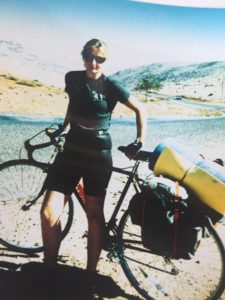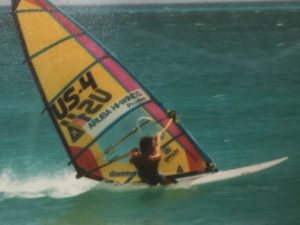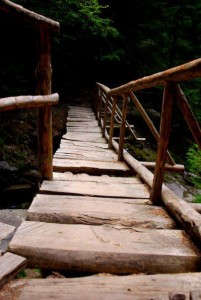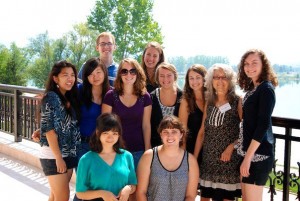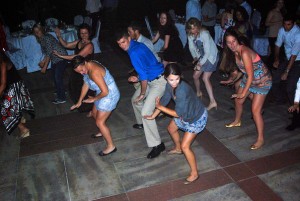Have you ever had a moment when you realized that your parents have had a far more profound effect on your decisions than you previously realized? I’m not talking about the conversations where your parents subtly (or maybe not so subtly) hint at what they would like you to do with your life. I’m talking about those moments when you realize that without realizing it, you’re following your parents’ example.
I had one of those very recently, when I was trying to make an important decision about my post-graduation plans.
It was September. I had just arrived at Scripps, and was excited and relieved that I had finally decided on the graduate degree I would pursue. However, I was immediately met by another hard choice: would I apply to grad programs after graduating Scripps, taking a year to travel and work, or apply now, launching myself right back into academia?
There were pros and cons to either choice. By going straight to grad school, I would maintain the momentum I’ve built up over my time at Scripps, and find out sooner about whether I would get into my top choice grad school, which would relieve some anxiety. However, every time I considered this option, I had a unsettling feeling of doubt and discomfort. I kept coming back to the idea of the gap year.
The decision began to weigh heavily on me, growing to existential proportions. It seemed to me that whatever choice I made would be a reflection of my values in life. By considering taking a gap year to travel and work, I felt like I was once and for all giving up my high school identity as a hyper ambitious go-getter, an idea I haven’t entirely let go of. I worried (irrationally) that my family would see me as a “slacker,” or (more realistically) that I would begin to see myself that way.
But at the same time, I imagined all the stories of adventures my parents had from their twenties, and realized that many of their best life experiences would never have happened if they hadn’t have taken risks- like taking a year off. That’s when I realized that the way my parents have lived their lives have had a far greater impact on me than I imagined before.
My mum still talks wistfully about how she spent her early twenties rock climbing, how she camped out illegally for weeks on a beach in Greece, how she rode her Harley Davidson across Santorini and her dingy little road bike across Turkey. I thought about how she deferred her first teaching job (in England, her country of origin) to travel across the Atlantic for the first time, take a Greyhound bus from Toronto to San Francisco, and then backpack across Mexico for two months.
I thought about my Dad and how in his early twenties, he quit his first job and got his pilot’s license, flying back and forth between LAX and Catalina Island. And I thought about his fabled windsurfing adventures in Aruba.
Finally, I thought about how together, my parents quit their jobs, left the USA, and bike toured across the entirety of the UK, Greece, and New Zealand.
In those few months of trying to make this decision about grad school and whether to take some time to travel and work, I realized just how big an impact my parents’ attitudes towards life and adventure have had on me. And I worried that if I were to dive straight into grad school, I would miss out on a crucial opportunity to collect a few of my own experiences. Worst of all, what if by giving up this opportunity, I inadvertently set the tone for a post college life where my career always took priority, no matter what.
I realize that even if I were to go straight into grad school, I would still probably have adventures, that education and life experience aren’t mutually exclusive. In fact, adventure, risk, and occasional danger has already been an important part of my college years. There was the time my best friend and I backpacked part of the Pacific Crest Trail, got stalked by a mountain lion, and had to have my dad bail us out. Or the summer that I spent 15 hour days trekking solo into canyons at Crater Lake National Park in order to search for an elusive species of frog. There was the other time that, via Facebook, I joined up with a group of female cyclists from Long Beach whom I’d never met, rode the train up to Santa Barbara, stayed the night in a dingy motel, then tried to ride with them all the way down the coast back to LA only to crash my bike and end up in the ER.
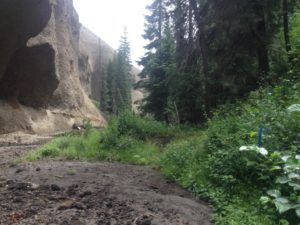
My summer job a year ago, when I regularly hiked miles (with my waders) through a river at the bottom of a 300 foot canyon.
These are the stories from college upon which I already fondly reminisce. Call me greedy, but I want more.
While I realize that sometimes, the best adventures are not planned, I think taking a year to act spontaneously, and do things I would not normally do definitely won’t hurt my prospects of stumbling across experience.
When I enter the academic world once more, I expect to still have a little of that go-getter inside myself. I don’t think that part of me will ever completely go away. But there’s another part of me, the adventurous side that I inherited from my parents, that’s telling me that the year following my graduation from Scripps is a crucial year for adventure and experience, and that while grad school can wait twelve months, my gap year won’t.


